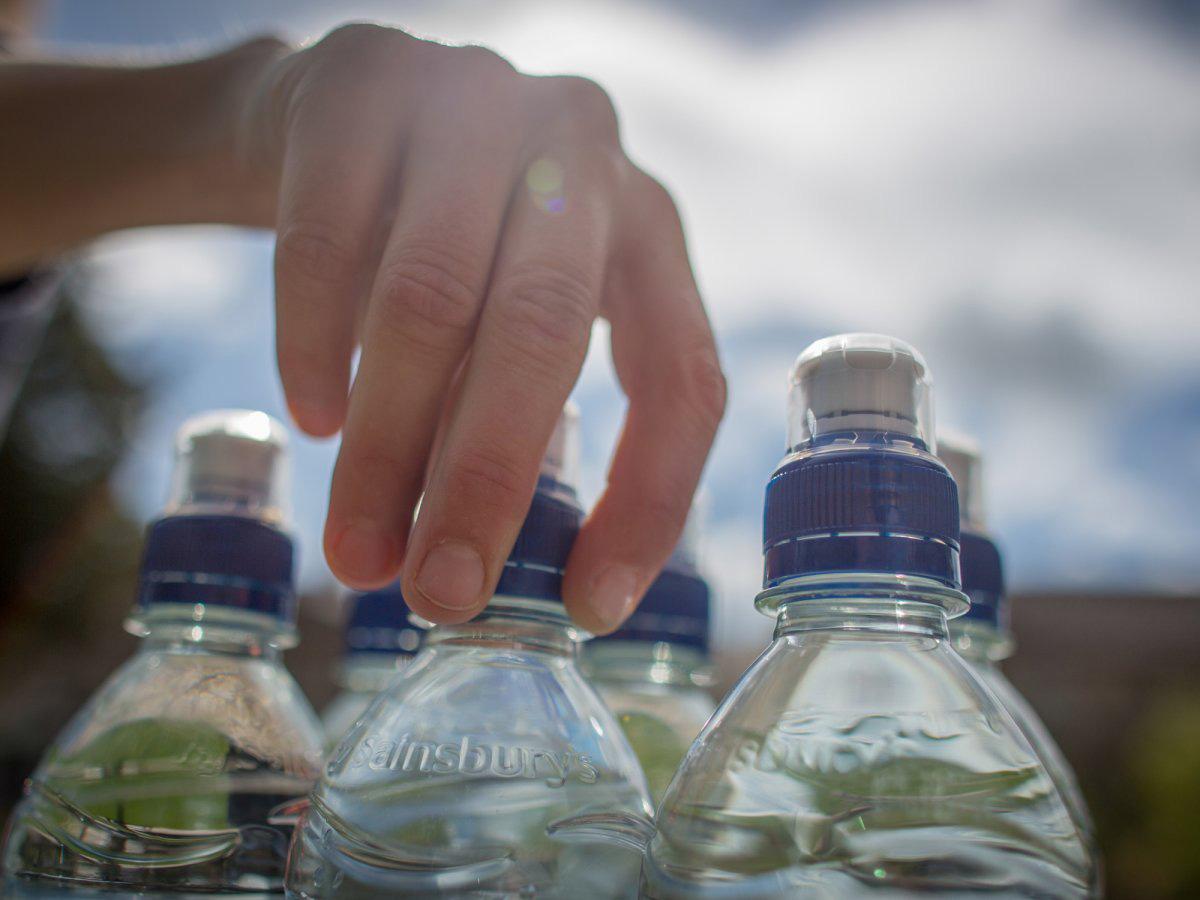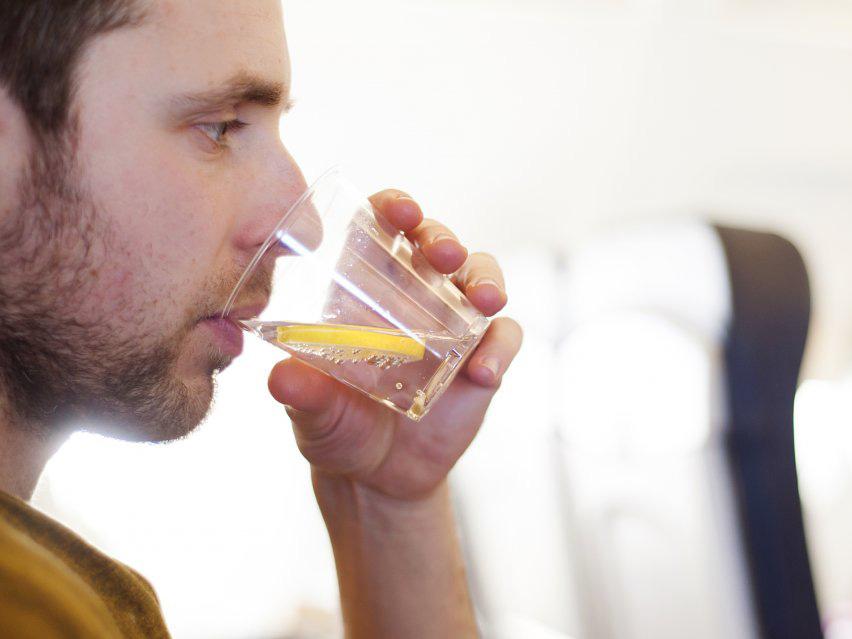15 facts that show why bottled water is one of the biggest scams of the century
Some of us get our water for free from the tap. The rest pay for it — at the cost of roughly $100 billion a year

Your support helps us to tell the story
From reproductive rights to climate change to Big Tech, The Independent is on the ground when the story is developing. Whether it's investigating the financials of Elon Musk's pro-Trump PAC or producing our latest documentary, 'The A Word', which shines a light on the American women fighting for reproductive rights, we know how important it is to parse out the facts from the messaging.
At such a critical moment in US history, we need reporters on the ground. Your donation allows us to keep sending journalists to speak to both sides of the story.
The Independent is trusted by Americans across the entire political spectrum. And unlike many other quality news outlets, we choose not to lock Americans out of our reporting and analysis with paywalls. We believe quality journalism should be available to everyone, paid for by those who can afford it.
Your support makes all the difference.There's nothing quite like the feeling of pure, ice-cold hydration. Some of us get our water for free from the tap. The rest pay for it — at the cost of roughly $100 billion a year.
At that steep a price tag, you might assume buying the bottled stuff would be worth it. In most cases, you'd be wrong.
For the vast majority of Americans, a glass from the tap and a glass from the bottle are virtually identical as far as their health and nutritional quality are concerned. In some cases, publicly-sourced tap may actually be safer since it is usually tested more frequently.
There are exceptions, however — people living near private wells do not enjoy the same rigorous testing as those whose water comes from public sources, and some public sources are not properly screened, as was recently seen in Flint, Michigan.
But there are plenty of reasons to stop shelling out for bottled water. Read on to find out all the things you didn't know about your drinking water.
1. The first documented case of bottled water being sold was in Boston in the 1760s, when a company called Jackson's Spa bottled and sold mineral water for “therapeutic” uses. Companies in Saratoga Springs and Albany also appear to have packaged and sold water.
2. Across the globe, people drink roughly 10% more bottled water every year, but Americans continue to consume more packaged H2O than people in other countries do.
3. At 12.8 billion gallons, or 39 gallons per person, Americans today drink more bottled water than milk or beer.
4. Last year was the first time Americans drank more bottled water than soda. “Bottled water effectively reshaped the beverage marketplace,” Michael C. Bellas, Beverage Marketing's chairman and CEO, said in a recent statement.

5. It's not cheap. At an average cost of $1.22 per gallon, we're spending 300 times more on bottled water than we'd spend to drink from the tap. But that number could be even higher, some analysts have pointed out, since most sales are for single bottles.
6. But research suggests that for most Americans, the stuff in a bottle is not better for you than the stuff in your tap. In fact, a recent report found that almost half of all bottled water is actually derived from the tap. In 2007, Pepsi (Aquafina) and Nestle (Pure Life) had to change their labels to more accurately reflect this.
7. Tap water is also typically tested for quality and contamination more frequently than bottled water. The Environmental Protection Agency is responsible for conducting those tests.
8. Still, the quality of your tap can vary considerably based on where you live. According to EPA law, you should receive an annual drinking water quality report, or Consumer Confidence Report, by July 1 that details where your water comes from and what's in it. You can use the link below to find yours.
9. However, if you live in one of the 15 million (mostly rural) US households that gets drinking water from a private well, the EPA isn't keeping an eye on your water quality. “It is the responsibility of the homeowner to maintain the safety of their water,” the agency states on its website.
10. Research suggests that the water from many of these wells is not safe to drink. In a 2011 report, 13% of the private wells that geologists tested were found to contain at least one element (like arsenic or uranium) at a concentration that exceeded national guidelines.
11. The recent resurgence in bottled water's popularity may be due to rising concerns about the purity of tap water. A recent Gallup poll found that 63% of Americans worried a “great deal” about the pollution in drinking water — the highest percentage since 2001.
12. And when it comes to taste, most of us probably can't tell the difference. A recent blind taste test survey by students at Boston University found that only a third taste-testers identified the tap water sample correctly.

13. Making bottled water is also an extensive, resource-heavy process. A study in the journal Environmental Research Letters found that roughly 32-54 million barrels of oil went into producing the amount of bottled water consumed in the US in 2007.
14. It also takes more water to make a bottle of water than it does to fill it. A recent study from the International Bottled Water Association found that North American companies companies use 1.39 litres of water to make one litres of the bottled stuff.
15. But hey, you might be thinking: At least they get recycled, right? For every six water bottles Americans use, only one makes it to the recycle bin, according to National Geographic.
So think twice the next time you consider buying a case of bottled water. To double check that your local tap water is clean, look up your region's Consumer Confidence Report with the link below. If you can't find it, contact your local representative.
Find out how clean your water is.
• Here are some of the most bizarre things flight attendants have seen in their line of duty
• These are the 19 best countries for raising a family, as voted by expats
• Where are the world’s most Instagrammable walls?
Read the original article on Business Insider UK. © 2016. Follow Business Insider UK on Twitter.
Join our commenting forum
Join thought-provoking conversations, follow other Independent readers and see their replies
Comments